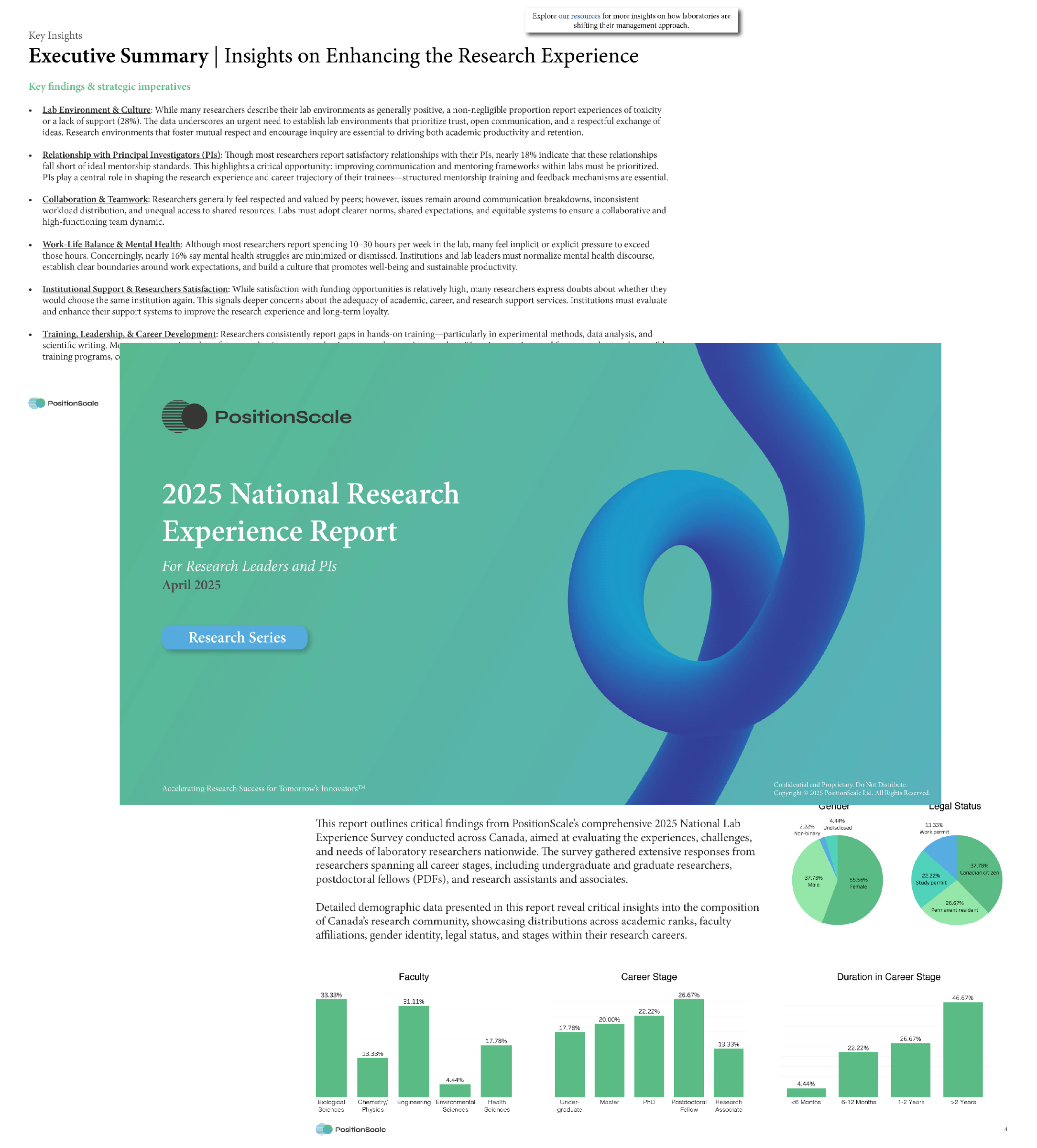What's really happening inside academic labs in 2025?
We surveyed hundreds of researchers across Canada—from undergraduate and graduate students, postdocs, and research assistants and associates—to uncover what life in the lab is actually like. The 2025 National Research Experience Report reveals what’s working, what’s broken, and where labs need urgent improvement.

What's inside the report?
We dug deep into the research. This report is built on real insights from researchers across Canada, spanning undergraduates, graduate students, postdocs, and research assistants and associates.
We captured lab experiences from a wide range of researchers—across disciplines, career stages, and institutions—giving you a comprehensive look at what life in the lab looks like today. This report surfaces the patterns, challenges, and opportunities that matter most across the research landscape.
And it’s not just survey data. You’ll also get:
- The true impact of PI-student relationships on engagement, retention, and satisfaction
- Where lab culture is thriving (and where it’s falling apart)
- The gaps in training, feedback, and hands-on mentorship
- What researchers are seeking from their peers, PIs, and research institutions
Plus: Strategic takeaways and recommendations for lab leaders, department heads, and institutions looking to improve retention, research output, and team cohesion.

FAQ
If you still have questions, let us know by sending us an email to connect@positionscale.com, we're always happy to help.
This report is for researchers, Principal Investigators (PIs), lab managers, department heads, and institutional leaders who care about the real state of academic research environments. Whether you’re a PhD student navigating your lab experience, a PI working to improve team dynamics, or a university administrator shaping policy—this report offers critical insights to guide better mentorship, training, support, and retention strategies.
Unlike broad institutional surveys, this report focuses specifically on the lived experiences of researchers within academic labs—from mentorship and lab culture to mental health, training, and future career goals. It offers data-driven insights and real researcher perspectives that help PIs and institutions take meaningful action.
We surveyed hundreds of researchers across Canada in early 2025. Detailed demographic data presented in this report reveal critical insights into the composition of Canada’s research community, showcasing distributions across academic ranks, faculty affiliations, gender identity, legal status, and stages within their research careers.
Respondents included undergraduate and graduate students, postdoctoral fellows, and research assistants and associates working in academic labs across Canada. They came from a range of disciplines including health sciences, engineering, biological sciences, and more—capturing a diverse cross-section of the research community.
